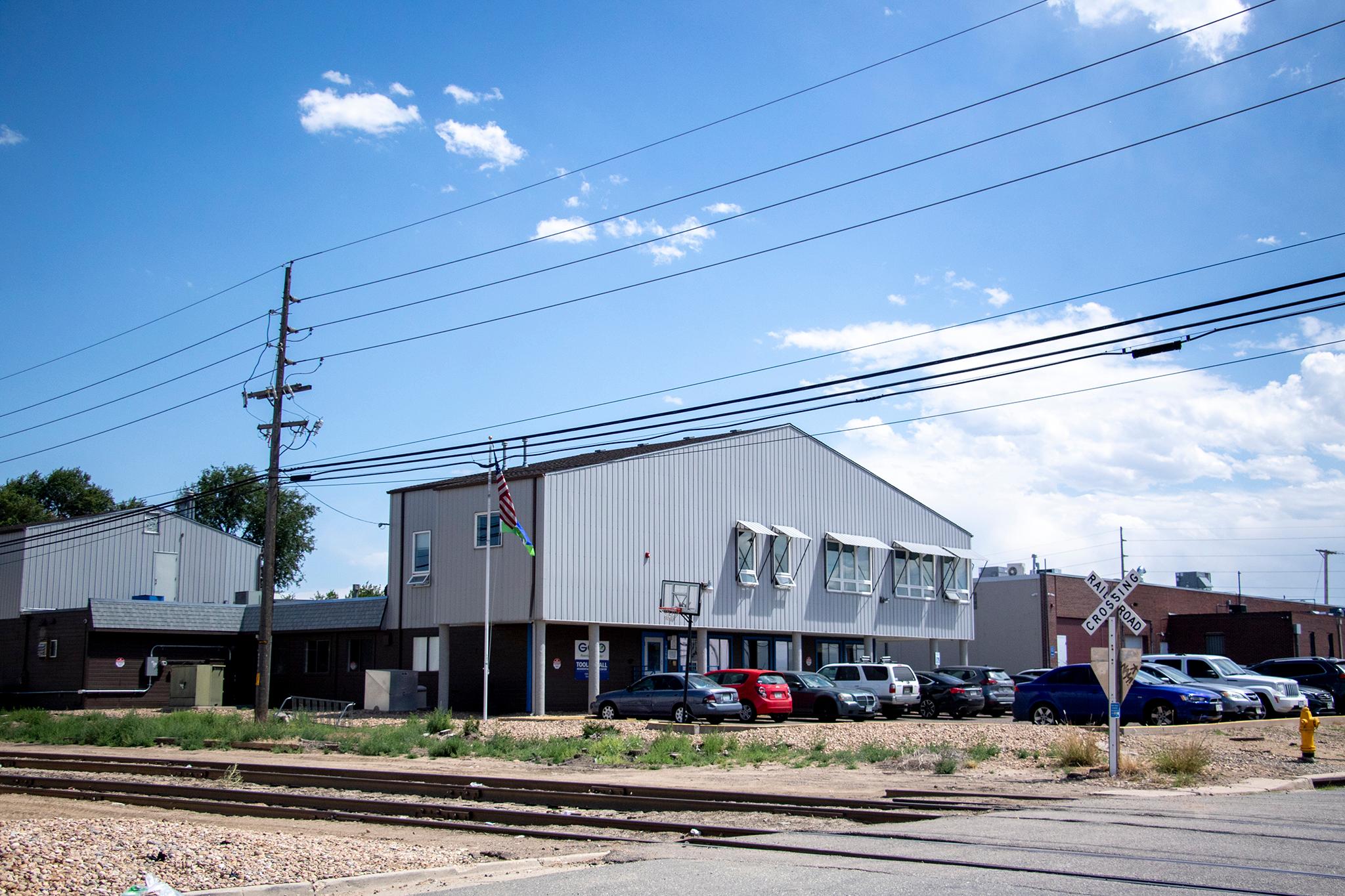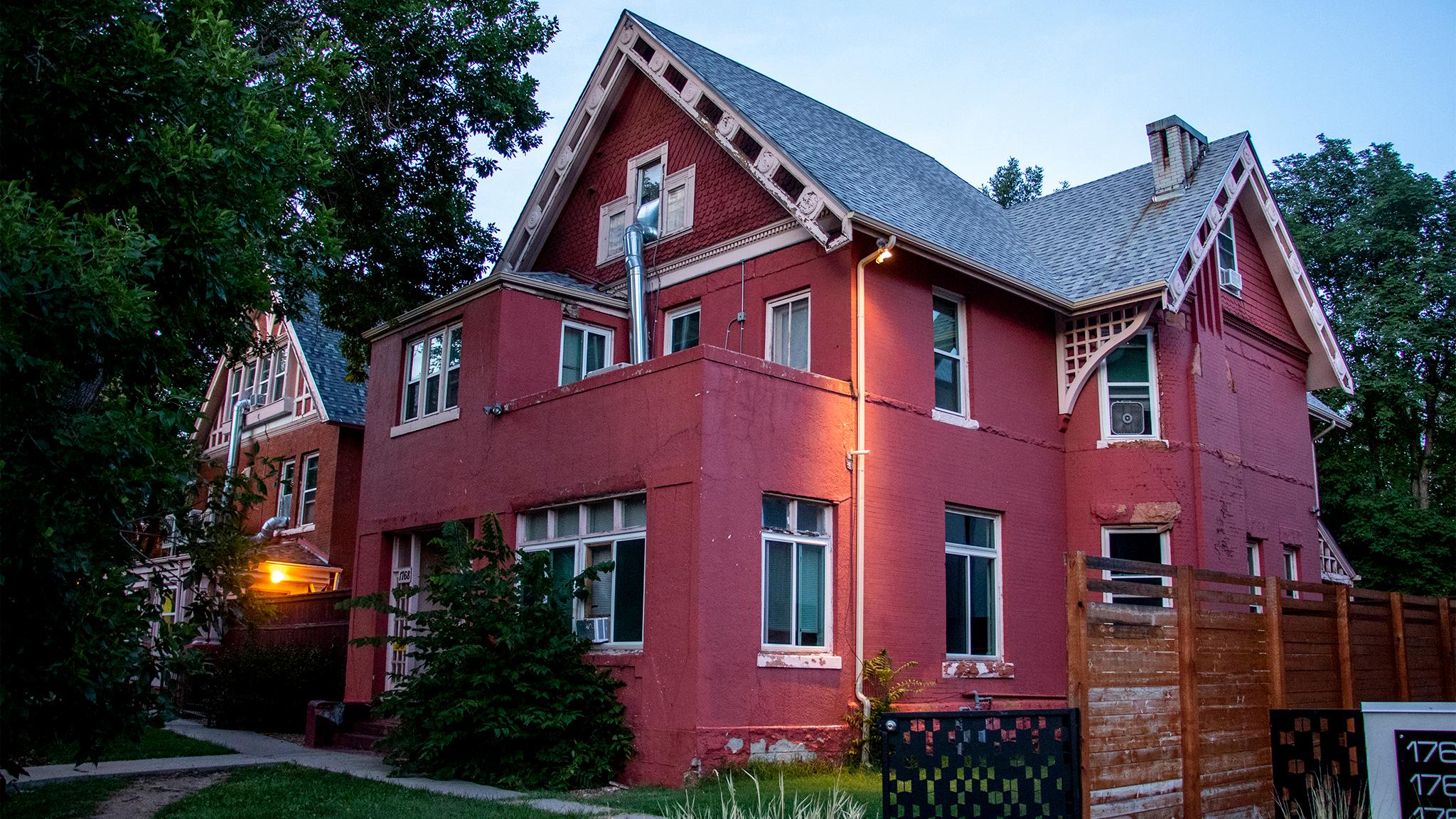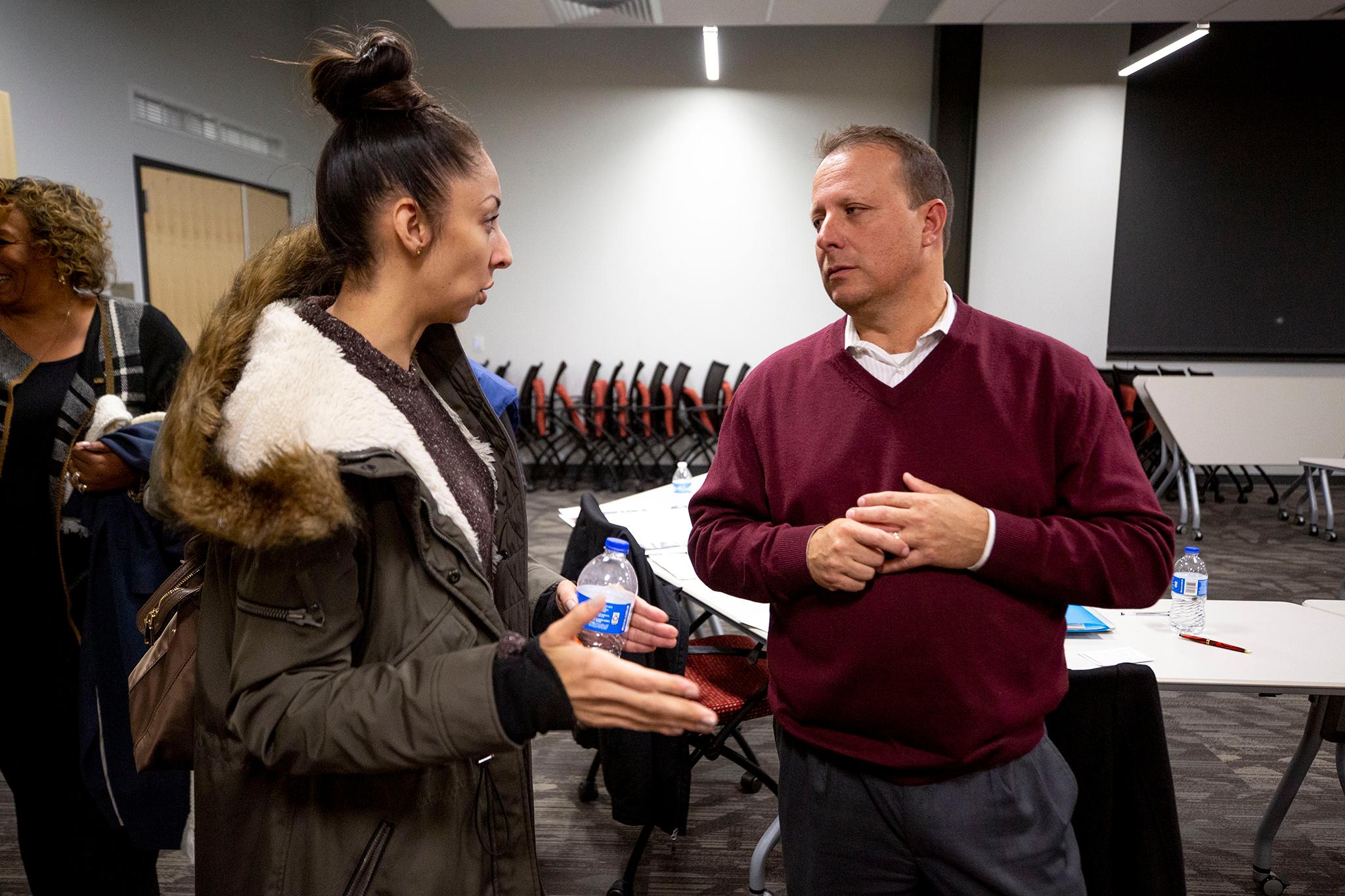The first domino has fallen since Denver City Council decided in August to divest from two halfway house operators whose parent companies are involved with immigration detention elsewhere in the U.S. The struggle to fill the void left after they close has just begun.
The Williams Street halfway house in City Park West, which was owned and operated by GEO Group - who also owns Aurora's private immigration prison - closed for good last Monday. Women living there were moved to other facilities outside of Denver in the preceding weeks. The facility could hold up to 80 women. Many now live at the Arapahoe County Residential Center, which is also owned by GEO.
Today, the list of people waiting to get into Denver's diminishing halfway houses, an option that becomes available in the last 16 months of a prisoner's sentence, is over 600 people long.
Denver Division of Community Corrections director Greg Mauro spoke at a Thursday meeting about how to address the closures that there is another potential avenue: The city is currently "exploring the feasibility" of purchasing one of the existing facilities.
If it can buy the building, Mauro said Denver could lease or give the space to a third-party organization to run a new halfway house operation. He said the existing rules, which require halfway house operators to own the buildings they use, have limited what kinds of organizations can work in this space. This new configuration could allow a community-based organization, not a for-profit company, to take up the workload. It's something justice advocates hope might happen in the vacuum left by GEO and CoreCivic.
Mauro said whether any such organizations exist is an "unknown," but a partnership like that isn't unheard of. Weld, Jefferson and Adams counties all have halfway houses run by third parties in buildings owned by local governments.
In the meantime, a task force has been trying to figure out how to transition Denver away from GEO and CoreCivic on a tight timeline.
In August, Council voted to temporarily extend contracts with the companies. They allowed GEO to operate until the end of the year and CoreCivic until July 2020. But replacing these services before both close may not be possible, and authorities worry people will suffer in the short term as a result.
As the task force met on Thursday night, Mauro said GEO's second halfway house, Tooley Hall, would close in mid-December. Tooley Hall is currently home to an experimental "cognitive behavioral therapy" program that's three years into a five-year pilot period. Tooley's closing means the experiment will be disrupted, but Mauro said it will move to Denver County Jail and the city will continue to operate it.

Things are less clear about CoreCivic's departure from Denver. Mauro presented a timeline that showed regular placements into their halfway houses would cease on Dec. 19 so CoreCivic's four facilities can close, one by one, beginning in March.
But task force member District Judge Karen Brody said this timeline meant "we're going to fall off a cliff." More and more people will be forced to sit in prison and miss out on this valuable re-entry period as Denver loses more bed space. Brody said she gets letters from prisoners concerned about their futures every day.
David Johnson, director of adult parole and community corrections for the state's Department of Corrections, said Denver's dwindling capacity "creates a tremendous amount of pressure on the system as a whole."
Members of the committee argued about whether to extend CoreCivic's contract long enough to find a workable solution.
Mauro said it's "exciting" to think about a reformed system down the road that might be more engrained in community support. About half of people who leave halfway houses end up incarcerated again just two years after they are released, so there's room for improvement. While a better longterm system is enticing, Mauro was clear that the system and those imprisoned in it will feel some pain in the short term.
Hassan Latif, director of the Second Chance Center and co-chair of the committee, said the situation is a "crisis." He hopes the city can make some exceptions to speed things along.
City Councilwoman Candi CdeBaca, who instigated the initial vote to divest from GEO and CoreCivic, said she's "devastated" that the women formerly incarcerated at Williams Street are "scattered all over the place and not where they feel like they're going to be the most successful," but she said this difficult period is better than keeping the status quo.
"That place was a dump," she said, adding Williams Street's closure was a sign of necessary change finally beginning to take shape.
Twenty years ago, task force member Mannie Rodriguez told the group, Capitol Hill was "saturated" with programs for addicts and people re-entering society from prison.
Rodriguez has been in this world for a long time. He founded Independence House, a halfway house operator, in the 1970s.
But he said times had changed by the new millennium.
"Denver City Council didn't want them all in their districts," he said. "They fought it and they moved it out of Cap Hill."
Mauro said there were a couple of reasons why the city's halfway houses consolidated over time and why, today, there are only a handful of facilities owned mostly by companies with a lot of money. One was that the criminal justice system shifted focus from just incarcerating people to actually changing behavior. That meant longer stays in places like halfway houses.
But changes to zoning in the late '90s and early 2000s also had a lasting impact. Mauro said the city began to limit how many people could stay in its halfway houses and instituted a 1,500-foot setback rule from schools and residential districts. In 2008, a moratorium was placed on halfway houses, barring any new operations from opening in Denver until May 1, 2018.
City Councilwoman Jamie Torres said these rules were written in as "a diluting mechanism, not so much a community safety mechanism."
"It was about getting rid of it in Denver, period."

Those rules were written as a high-profile murder reverberated through the city.
In 1998, a parolee from Baltimore named Donta Paige came to Denver to attend a residential rehab program on Gaylord Street near Cheesman Park. He was kicked out of the program, which was run by the Stout Street Foundation. He broke into Peyton Tuthill's home soon after, sexually assaulted and murdered her. While Paige was not staying in a community corrections facility, Mauro said halfway houses and residential rehab facilities were conflated in residents' minds.
Zoning regulations on halfway houses have become the major sticking point in the halfway house task force's attempt to divest from GEO and CoreCivic while minimizing harms to prisoners and the state justice system.
Mauro said he's asked the city to address its strict rules for years. While the current situation is a headache, he said he's glad there's actually attention on the issue.
Zoning changes won't happen on Denver's divestment schedule.
Andrew Webb, Denver's senior city planner, told the committee on Thursday that zoning changes aren't likely to happen until next spring. It's going to take a formal text amendment, which requires a lot of public meetings before the verbiage can be approved by City Council.
CdeBaca said that timeline was not acceptable.
"The zoning needs to happen and needs to happen quickly," she said. "We're blocking our options."
But Webb was clear that the long timeline is dictated by city rules. The impending holidays will slow the process until January and, he made clear, this is going to draw a lot of concern from residents.
"This is a very controversial topic and I expect it will have a lot of challenging conversations," he said.
This all means opening up new facilities likely won't happen before CoreCivic is currently set to exit the city. It's a big rope tied around the task force's hands.
Mike Anderson, a citizen member of the committee, said City Council should consider further extending CoreCivic's contracts until a better solution is available.
CdeBaca responded: "That's not an option that's on the table right now."
Torres chimed in, saying, "Everything's on the table at this point."













